Acne is not just a facial issue; it can appear on various parts of the body, including the back, chest, and shoulders. Managing body acne can be challenging due to the thicker skin and larger pores on the body. One effective way to treat and prevent body acne is by using a body serum specifically formulated for acne-prone skin. In this article, we’ll explore the best body serums for acne-prone skin, what causes body acne, and how to incorporate these serums into your skincare routine.
What Causes Acne on the Body?
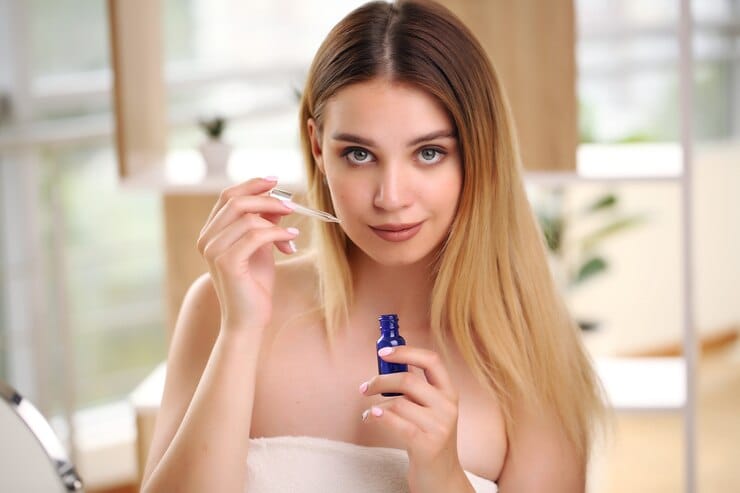
Body acne is caused by many of the same factors as facial acne. These include excess oil production, clogged pores, bacteria, and inflammation. However, body acne can also be triggered by sweat, friction from clothing, and the use of heavy, pore-clogging products. Hormonal changes, stress, and diet can also contribute to body breakouts. Understanding the causes of body acne can help in choosing the right products and treatments to keep it under control.
What to Look for in a Body Serum for Acne-Prone Skin
When selecting a body serum for acne-prone skin, it’s important to look for products that are non-comedogenic, meaning they won’t clog pores. The serum should be lightweight and absorb quickly into the skin without leaving a greasy residue. Additionally, it’s beneficial to choose a serum that contains anti-inflammatory and antibacterial ingredients to reduce redness and prevent breakouts. Fragrance-free and hypoallergenic options are also ideal to avoid irritating sensitive skin.
Top Ingredients to Look for in Body Serums
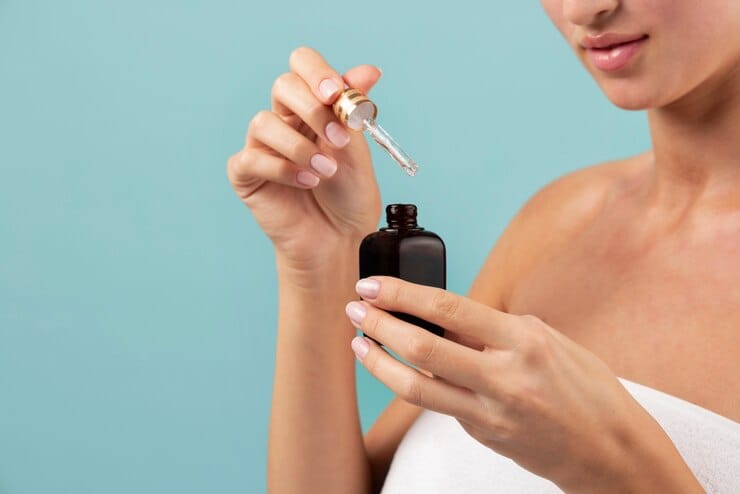
- Salicylic Acid: A beta-hydroxy acid (BHA) that exfoliates the skin and helps to unclog pores.
- Niacinamide: A form of Vitamin B3 that reduces inflammation, improves skin texture, and minimizes pores.
- Tea Tree Oil: Known for its antibacterial properties, it helps in controlling acne-causing bacteria.
- Glycolic Acid: An alpha-hydroxy acid (AHA) that exfoliates the skin and reduces the appearance of acne scars.
- Zinc PCA regulates oil production and has anti-inflammatory properties.
How to Properly Apply Body Serum for Acne-Prone Skin
To get the best results from your body serum, apply it after showering when your skin is clean and slightly damp. This helps the serum absorb better. Start by applying a small amount to the affected areas and gently massage it into the skin. Follow up with a lightweight, noncomedogenic moisturizer to lock in hydration. It’s best to apply the serum once or twice a day, depending on the severity of your acne and the product’s instructions.
The Best Body Serums for Acne-Prone Skin
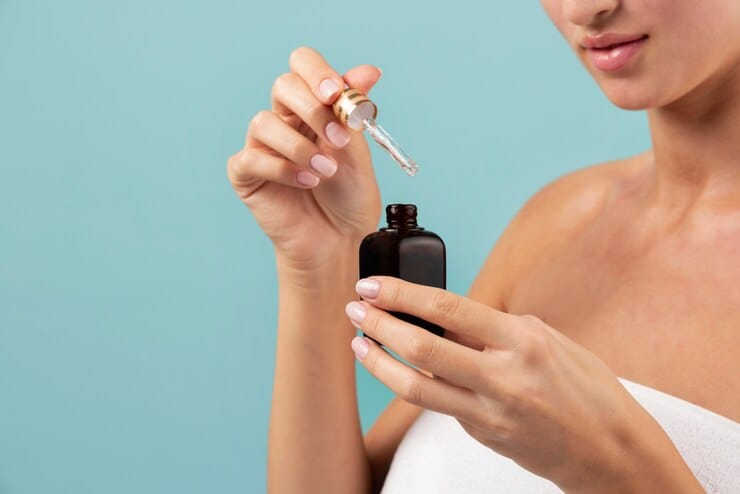
- Paula’s Choice Weightless Body Treatment with 2% BHA: This serum contains salicylic acid and is known for its ability to unclog pores and smooth the skin.
- Neutrogena Body Clear Body Spray: A convenient spray formula that targets hard-to-reach areas with salicylic acid.
- Murad Clarifying Body Spray: Contains salicylic acid and glycolic acid to exfoliate and prevent breakouts.
- Mario Badescu AHA Botanical Body Soap: Although a cleanser, it works well when paired with a serum for a comprehensive acne-fighting routine.
- La Roche-Posay Effaclar Clarifying Solution: Known for its gentle yet effective formula with glycolic acid.
DIY Body Serums for Acne-Prone Skin
If you prefer natural remedies, you can create your own body serum at home. Mix a few drops of tea tree oil with a carrier oil like jojoba or grapeseed oil. Add a small amount of aloe vera gel for its soothing properties. This DIY serum can be applied to acne-prone areas to help reduce inflammation and prevent future breakouts. However, always do a patch test first to ensure your skin doesn’t react negatively.
Common Mistakes to Avoid When Using Body Serums
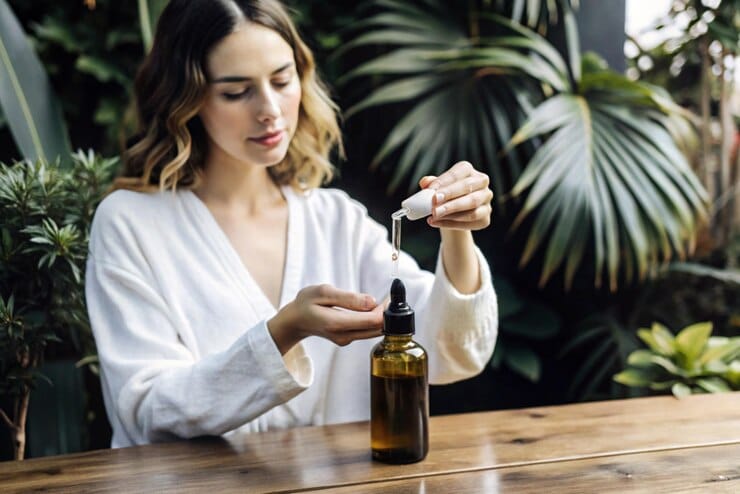
- Over-Exfoliating: Using too many exfoliating products can strip the skin of its natural oils, leading to more acne.
- Skipping moisturizer: Even oily and acne-prone skin needs moisture. Skipping this step can lead to dryness and irritation.
- Using Too Much Product: More isn’t always better. Over-application can lead to clogged pores and breakouts.
- Not Being Consistent: Skincare requires consistency. Make sure to use your serum regularly for the best results.
The Role of Diet and Lifestyle in Managing Body Acne
Diet and lifestyle play a significant role in managing body acne. Foods high in sugar and dairy can trigger breakouts, so it’s important to maintain a balanced diet rich in fruits, vegetables, and whole grains. Staying hydrated and reducing stress through regular exercise and mindfulness practices can also help keep body acne at bay. Additionally, wearing loose-fitting, breathable clothing can prevent sweat and bacteria buildup, which are common causes of body acne.
Additional skincare tips for acne-prone skin
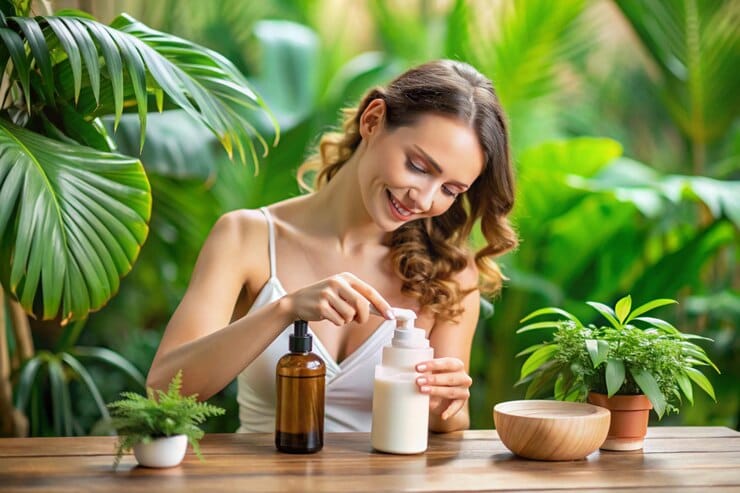
- Shower After Sweating: Always shower after exercising or sweating to remove dirt, oil, and bacteria from the skin.
- Use Non-Comedogenic Sunscreen: Protect your skin from sun damage without clogging pores by using a non-comedogenic sunscreen.
- Avoid harsh soaps. Use gentle, sulfate-free cleansers that won’t strip your skin of its natural oils.
- Exfoliate Regularly: Use a gentle exfoliant once or twice a week to remove dead skin cells and prevent clogged pores.
Conclusion
Managing body acne can be challenging, but with the right body serum and skincare routine, it’s possible to achieve clear, healthy skin. By understanding the causes of body acne and choosing products with effective ingredients, you can reduce breakouts and improve your skin’s overall texture. Remember, consistency is key, and incorporating lifestyle changes such as a balanced diet and regular exercise can further enhance your results.
FAQs About Body Serums and Acne
Can Body Serums Cause Breakouts?
Yes, especially if they contain pore-clogging ingredients. Opt for non-comedogenic formulas.
How Often Should I Use a Body Serum?
Start with once daily, after showering. Increase to twice daily if your skin tolerates it well.
Are Natural Ingredients Better for Acne-Prone Skin?
They can be, but ensure they’re non-comedogenic. Natural doesn’t always mean safe.
Can I Use My Face Serum on My Body?
Yes, but face serums are usually more concentrated. A body-specific serum may be more effective for larger areas.
What Should I Do if My Skin Reacts to a Body Serum?
Stop using it immediately. Cleanse the area, apply a soothing moisturizer, and consult a dermatologist if needed.







